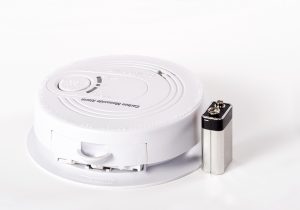
21 Apr How to Detect Carbon Monoxide
They call it the silent killer for a reason. Odorless, colorless, and tasteless, carbon monoxide can seep into your home and cause your family health problems without you even realizing it. Even though most homes are required to have carbon monoxide detectors, it’s important to know how to notice a potential leak in your home.
Check High-Risk Areas
Because of its lack of noticeable qualities, carbon monoxide can be hard to detect, so it’s important to start checking for leaks by looking at typical areas they would occur. Make sure your appliances are well-ventilated since using them in enclosed spaces can lead to dangerous emissions (i.e. an idling car in your garage.) Also inspect your gas lines for any tears, holes, or other damage that could result in carbon monoxide leaks.
Check for Symptoms
Those suffering from carbon monoxide poisoning often have flu-like symptoms, indigestion, headaches, nausea, and lightheadedness. Since these are all symptoms of regular illnesses, check to see who has them. One person’s symptoms may not be indicative of CO poisoning, but an entire household having those symptoms probably is.
Check Your Home
Your home itself could give you some clues if carbon monoxide is present. A stale, stuffy smell in your home is always a solid warning sign, as is a burning odor. That smell might not be from the CO itself, but it could be the result of other harmful gasses leaking into your home from malfunctioning appliances. Watch your gas stove for problems as well. Be wary if the pilot light is constantly going on and if the normally-blue flames are turning yellow, as this could also be a sign of leaking carbon monoxide.
CO presence is a serious problem that can dangerously affect your family, so check your detector regularly to ensure it is working properly. If you’re in need of a new carbon monoxide detector, call Wahl Family, Heating, Cooling, and Plumbing. We’ve been serving the Pittsburgh metro area since 1980, so you can trust us with all your home service needs. For more information, call us at (412) 265-2662.

